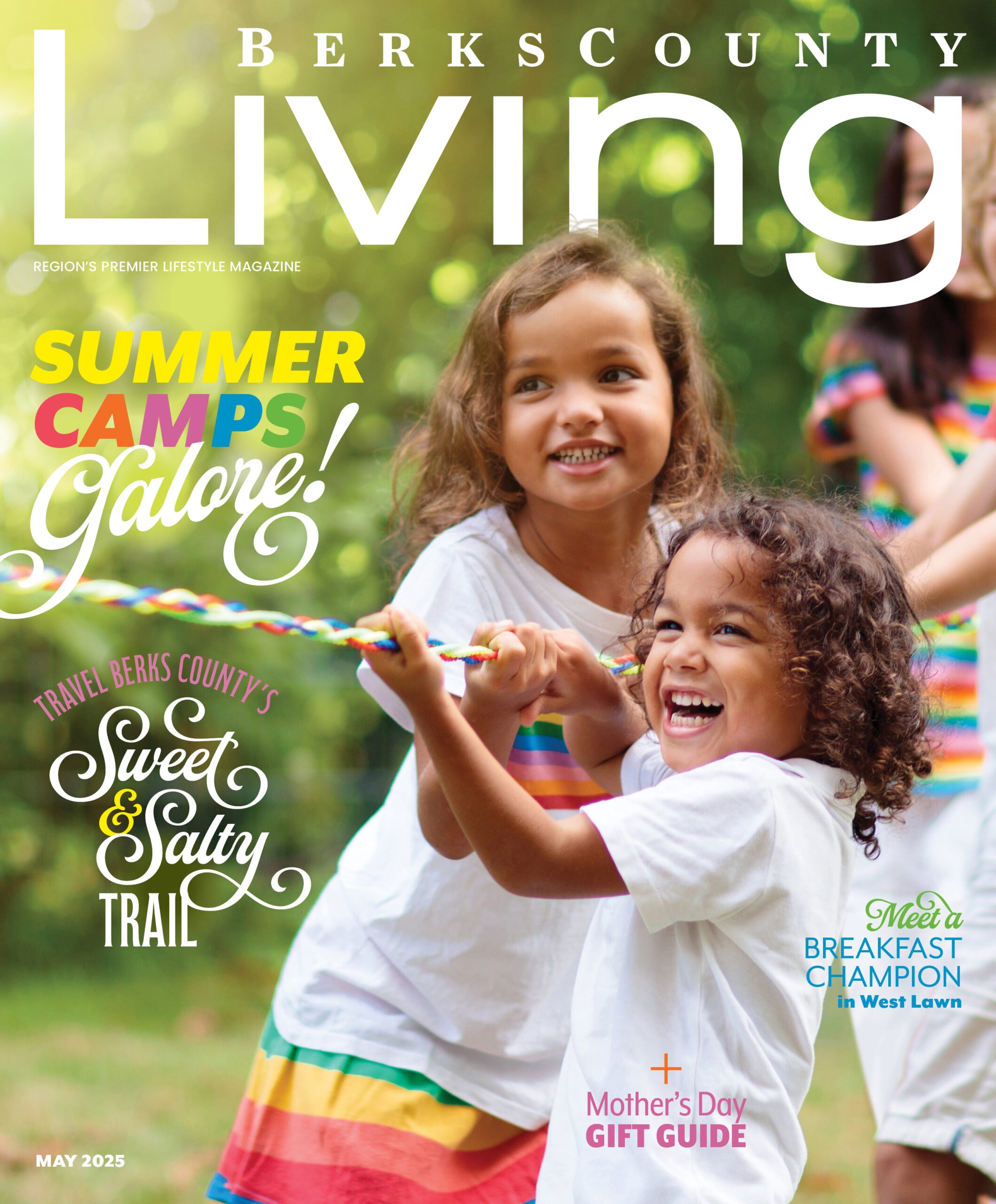Blogger Christine Miserandino (butyoudontlooksick.com) coined The Spoon Theory in her 2003 explanation of how Lupus impacts her daily life. She used a handful of spoons— each spoon representing a portion of energy — to more tangibly explain how she scrupulously rations out her finite allotment of daily physical capacity. Soon after, a world of chronic illness warriors felt more clearly seen, heard and not so alone. Taking on the cozy “Spoonie” moniker as their own, they began using spoons to not only share their experiences with those in their immediate circles, but they also fueled a supportive local and global online community and an ever-growing menagerie of hashtags like #spooniestrong, #spooniewarrior, #spoonielife and #spooniesupport. With an endless variety of local and virtual meet-ups, tips for symptom management, Pen Pals and countless health resources, it’s also free of the unnecessary pressure to prove oneself, a common and exhausting burden of those with a chronic illness or invisible disability. Of note, the Spoonies’ meme game is on point, with shared relatable humor and a friendly helping of fellow Spoonies’ uplifting, cute pet photos when they’re needed most.
Most healthy people have about the same amount of energy (same spoon count) each day, and healthy individuals begin their day with more spoons (more energy) than those suffering from the fatigue of chronic illness. Certain tasks and everyday necessities can cost more than one spoon. Healthy individuals have the luxury of not consciously precalculating and recalculating every moment of their day.
A vast majority of people don’t give a great deal of thought to the energy they’ll have exerted when they hop out of bed and into their morning shower. After belting out the latest Bruno Mars single, they get dressed, scarf down their breakfast and make their way to work, school or whatever other engagements they have planned for their day. Most individuals usually are capable of keeping a majority of the plans they make, too. Those pushing through chronic illness or invisible disabilities are not most individuals.
The average person doesn’t wake to the dread that brushing their teeth or putting on a fresh set of clothes will put them back in bed due to the physical toll those seemingly minor tasks take. If you’re a Spoonie, the energy to shower AND shave in one go may be a luxury. God forbid you also want to style your hair when your joints won’t allow you to raise your arms past your elbows or you select a shirt with a row of tricky buttons to contend with. For most, getting ready in the morning and heading to work is bundled into a tidy and predictable amount of time, and off they go. Most days, a Spoonie is depleted before they have even gotten to the heart of their day. For those able to work, their spoons are often long gone before attempting to accommodate family time, social outings, dinner or even relaxing.
Coping with Compassion
When Ryan M. was diagnosed with Guillain-Barré syndrome (an autoimmune disorder causing nerve damage by one’s own immune system, leading to muscle weakness and paralysis), he was greeted with more than the expected overwhelm of his new diagnosis. He was warmly welcomed by a remarkable community. Like many individuals with a chronic illness or invisible disability, this Leesport native found a hearty dose of solace and much-needed comradery in the Spoonie community and, believe it or not, reason to celebrate.
When Ryan initially received his diagnosis, the last thing he wanted to do was make a toast, but when he looks back on that day, he confesses with a shrug that he’s “ready to throw out the red carpet and fireworks. Sure, I’m human and can complain with the best of them.” But, one day, after leaving another arduous day of testing at the clinic, “I went out to my car, white-knuckled my steering wheel and screamed. After that? I cried — one of those ugly cries, you know? I just sat there — felt like hours. Eventually, I sort of just refused to feel sorry for myself. I was done being sad and angry. I was over it and so tired of that being my life for so many years.” He didn’t know how he was going to do it, but laughing, he shares, “I figured Google wasn’t the worst place to start.”
Before he knew it, Ryan was flooded with encouragement, an emerging strength in self-advocacy, new treatment resources and energy-saving life hacks. Best of all, he was introduced to a welcoming community of people he didn’t have to explain things to because they already understood. “It really helps me to not feel so alone in all this. I know I’m not the only one. That’s why I always do what I can to invest back into our local Spoonie community — even if it’s just time or a friendly word. Things aren’t all sunshine and roses. I’m not going to say anything to the contrary, but within the Spoonies, I don’t have to be dripping in positivity. Instead, we talk about the ugly facts of life head-on together, with compassion. I know I needed that in my darkest times; I don’t want anyone else to ever feel like life’s not worth it. None of us are alone — at least we don’t have to be, not really.”
Humor Helps
Toting a Mary Poppins-sized handbag, Jillian K. announces its contents as her “very own walking pharmacy.” Balancing on her rainbow sticker-decked walking cane against her chair and slowly lowering herself down with a wry smile, she points to her very black T-shirt that reads: ‘When I’m in pain, my shirt turns black.’ This Lorane resident was diagnosed with Hypermobile Ehlers-Danlos Syndrome, a rare genetic disorder effecting the collagen production and connective tissue throughout her body, skin and internal organs. “My sweet husband dubbed me Lady Scarecrow. See, the glue that holds a human body and all its contents together and in place — my bones, organs, tendons, digestive system, blood vessels…” taking a deep breath, Jillian explains, “Mine’s not reliable. I’m like a poorly crafted scarecrow; my limbs and organs refuse to stay in their proper place.” Frequent hypermobility complications can occur spontaneously; acutely painful, they cause chronic trauma to her body, inside and out.

Replacing Pace with Grace
With only two months remaining in Jillian’s nursing residency, her symptoms escalated significantly. After eight years of testing, she always believed that, once the doctors found the root cause for her frequent fatigue and debilitating pain, the next step was the cure. “Always a silver-lining person, I was so thrilled when the doctor told me she knew what was wrong. Finally, we’d put a stop to this plaguing pain and what felt like — well, it sounds awful, but…to me, it felt like a waste of living.”
“I had disappeared from my own life. It had been so long, and so many people were telling me it was all in my head — even some doctors. They’d say to take some aspirin; push through. I was dead-tired every day, but I still couldn’t sleep through the night ever. I was in so much pain, even with medication after medication. When they told me there was no cure, my world was upside-down. My life purpose, my passion — who was I? I couldn’t even vent to anyone who would really get it.”
Kindness and Candor
“It can be difficult to explain to your 6-year-old something that most adults can’t grasp, huh? Something as simple as a spoon can be a great middleman.” Spoonie families often find it to be a helpful tool in bridging the gap toward better understanding with friends and loved ones. “I’ve learned that I’m not being selfish or high-maintenance when I set harder boundaries or have to bow out of another girls’ night.” Self-advocacy is not about selfishness; it’s about being proactive and a good steward of oneself. “My physical and emotional well-being matters, and honestly, I’ve learned that I have to soften my expectations and not be so hard on myself.” Jillian shares that chronic illness can often run a person the risk of becoming a “chronic apology giver. Saying I’m sorry implies that I’ve done something wrong; I didn’t choose to be sick.” Jillian learned to replace her guilt with gratitude.
Finding understanding in genuine Spoonie friendships helped her build up the nerve to breech conversations she was once too scared to have. “By practicing healthier dialogues, I’ve built stronger relationships and a better understanding amongst my family and friends. It’s a blessing. Living with illness and disability is hard. I’m forced every moment of every day to choose exactly how I spend my limited time and energy. How can I not be grateful? There are so many people in the world who waste so much of their life without even thinking. I know I don’t have that luxury, but I also know I haven’t wasted the life I’ve been given. That’s a blessing and so is this incredible community.”
















